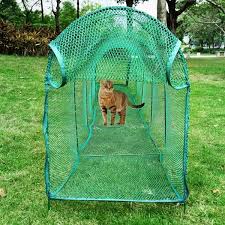I adopted a cat, Ms. Nibbles, that had not been socialized very much as a kitten. She enjoyed play, but seemed unreceptive of 'hands on' interactions.
I had a hairbrush of the sort used with blow-dryers, the kind having relatively few stiff bristles, each capped in a small sphere. Miss Nibbles enjoyed being brush with this, so each day I would geantly brush her, every once in a while allowing the edge of my hand to drag along with the brush. Over time, and as she became more receptive of them, these hand-strokes became more common. She was never a cat to put up with extended petting, but short petting sessions became just fine. The important thing is that these brushing/petting interactions were frequent (at least a couple times each day) and I never -forced- her to be petted. I always desisted the moment she showed any sign of enough. The cat told me how much was OK.
I took a similar approach to, and ultimately achieved even greater success with winning her over to being carried. I starting with very short lifts, where I set her down almost instantly, each lift ending in something she really enjoyed such as being placed next to a dab of wet food (or catnip), lifted to a sunny windowsill, or placed next to a favorite toy for play time. As she came to realize that EVERY TIME she was picked up it would end in something she loved, she grew increasingly tolerant of it. Yes it took time, but eventually one of her favorite activities as an elderly cat was to go 'exploring' with me, where I would carry her from cupboard to cupboard, opening the doors and letting her inspect the things inside. She would lay in my arms just peering and purring, purring and peering. Miss Nibbles died of cancer a few years ago, but as I describe these activities it is surprising me how much I miss her still. She was such a good cat.
Every cat is different and I can't promise that this approach will work for you. All that I can say is that it worked for me and that I hope the same for you. Cheers.
-Science_1
